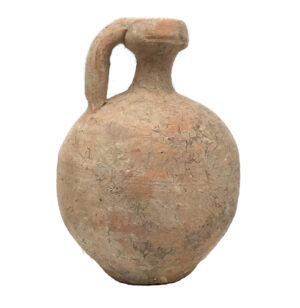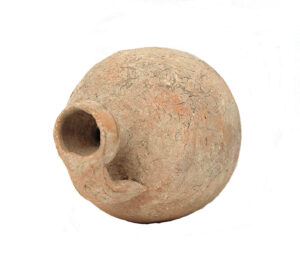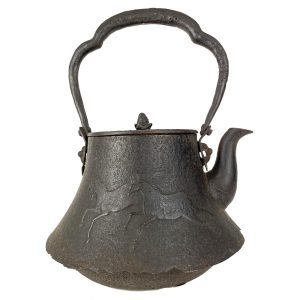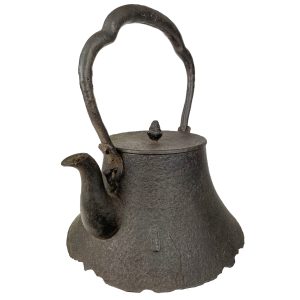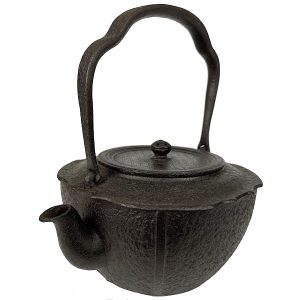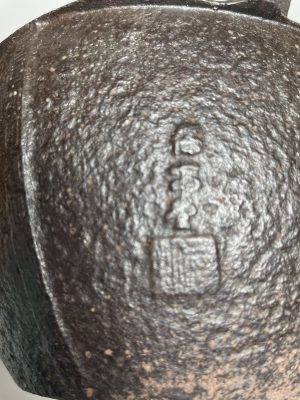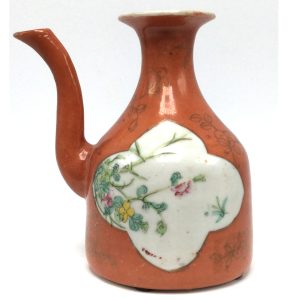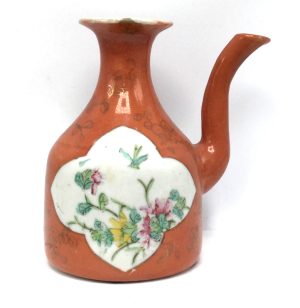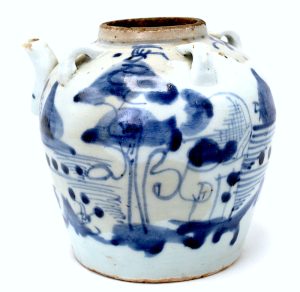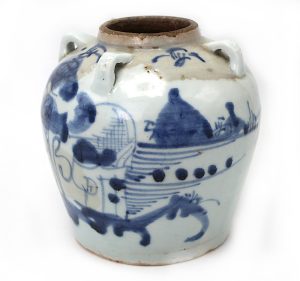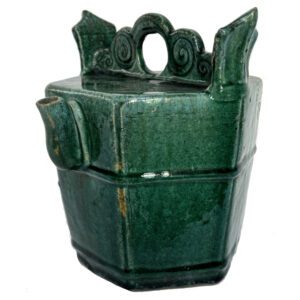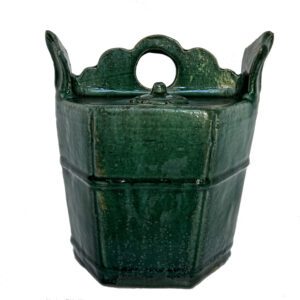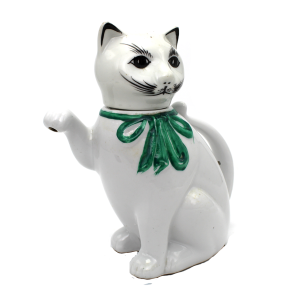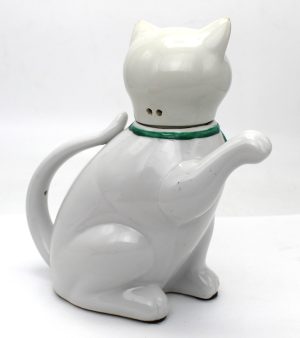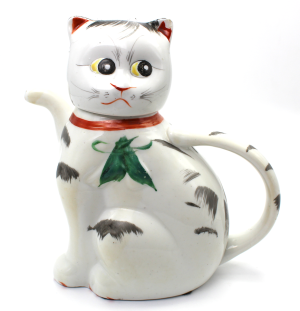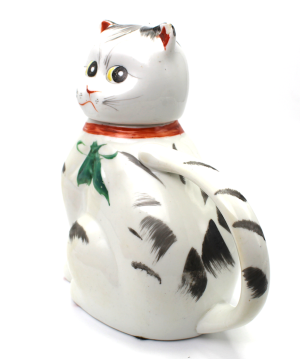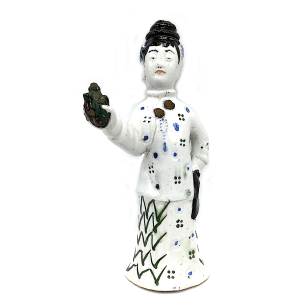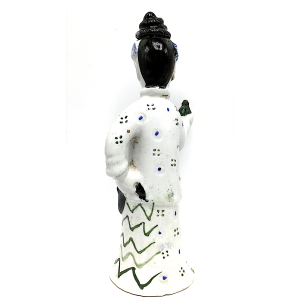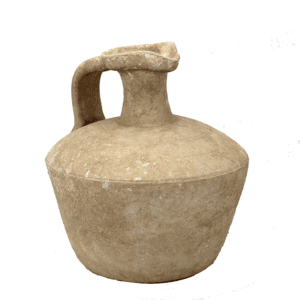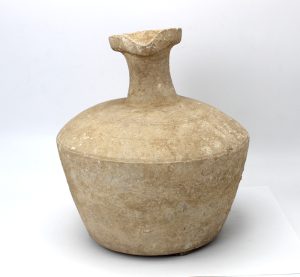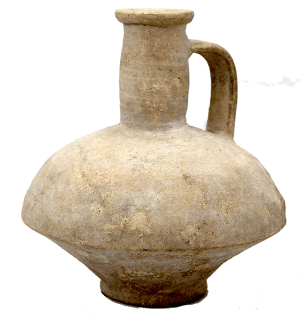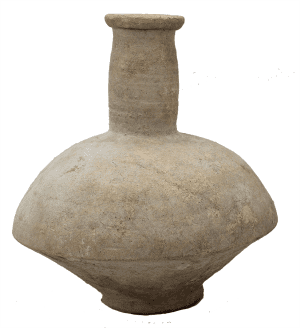-
Sale!


$395.00 Original price was: $395.00.$295.00Current price is: $295.00.
H: 4” Dia: 2.75″ | FREE SHIPPING WITHIN CONTINENTAL U.S.!
This Judean perfume juglet from the Holy Land’s Biblical Period was used throughout the Roman Empire to hold perfume or other costly items. Uncleaned, good condition, no repairs, aged patina, surface incrustation and mineral deposits, hairline cracks, and minor discoloration.
-
Sale!


$695.00 Original price was: $695.00.$550.00Current price is: $550.00.
Ht: 12.5″ W: 10″ D: 9.5″ | CALL 213-568-3030 OR EMAIL [email protected] FOR SHIPPING COST
Made in the Meiji era (1868-1912),this hand crafted antique Japanese cast iron tetsubin teapot has an unusual decorative handle and curved spout and has a beautiful relief design of galloping horses. Horses have been revered creatures in Japanese culture that embody grace, power and nobility. The knob on the lid probably represents a lotus, the Buddhist symbol of purity and enlightenment. As with all antiques, these pieces are purely decorative for display purposes only.
-
Sale!


$325.00 Original price was: $325.00.$275.00Current price is: $275.00.
Ht: 8.625” W: 7.5” D: 6.5” | CALL 213-568-3030 OR EMAIL [email protected] FOR SHIPPING COST
The hand crafted Tetsubin teapot displays simple yet elegant design: a scalloped top, gently curved handle, and short rounded spout, textured surface. The body is divided in 4 quadrants with meander border designs and the lid is has tiny diamond shaped indentations and is topped with a lotus shaped knob. A raised manufacturers seal on the back. Like all old Tetsubin cast iron kettles, it has rust on the bottom which can be removed by boiling green tea inside it, and is thus for display purposes only.
-
Sale!


$235.00 Original price was: $235.00.$195.00Current price is: $195.00.
H: 4.875″ W: 4.5″ D: 3.25″ | FREE SHIPPING WITHIN CONtINENTAL U.S.
Elegantly shaped porcelain ewer with graceful spout, saffron-colored glaze, quatrefoil panels and hand-painted floral designs within a gold frame with sinuous gold leaf vines.
-
Sale!


$145.00 Original price was: $145.00.$105.00Current price is: $105.00.
H: 5” W: 5.25” D: 4.5” | FREE SHIPPING within continental US.
Blue and white ceramics like spouted jar with four loops, were used in home kitchens and restaurants to hold oil, sauces, soy or other liquids. Decorated with country scene in a landscape with by tall trees.
-
Sale!


$395.00 Original price was: $395.00.$270.00Current price is: $270.00.
H: 9″ W: 8.375″ D: 5.5″ | free shipping within continental u.s.
Apple green glazed teapot typical of Shiwan kiln pottery known for its brilliant flambé glazes in the 18-19th century. Hexagonal shape with yoked rounded handle with spiral decorations that adds a decorative touch.
-
Sale!


$145.00 Original price was: $145.00.$125.00Current price is: $125.00.
H: 6.5″ W: 6.5″ D: 3.5″ | FREE SHIPPING WITHIN CONTINENTAL U.S.
Porcelain teapot with removable head and long sinuous tail handle ,Whimsical design with green ribbon collar and dangling ornamental bow. Bottom stamp and seal date to Qing Dynasty/Chinese Republic ca 1900-1920.
-
Sale!


$145.00 Original price was: $145.00.$125.00Current price is: $125.00.
H: 8” W: 8” D: 3.75” | FREE SHIPPING WITHIN CONTINENTAL U.S.!
This charming vintage porcelain cat teapot with raised paw for pouring tea, removable head and a sinuous tail handle is whimsical and colorful with a red ribbon collar, green bow and green, black and red accents defining the expressive face, ears, head and paws, all beautifully hand-painted.
-
Sale!


$265.00 Original price was: $265.00.$165.00Current price is: $165.00.
Ht: 8.5” W: 5” D: 3” | FREE SHIPPING WITHIN CONTINENTAL U.S.
This small charming Qing or early Chinese Republic teapot is an attendant, her right arm is the spout and the left is handle and her with flowers is a removable lid . She typical attendant clothing, a high mandarin collared jacket draped over a flaring skirt that is the piece’s base.
-
Sale!


$775.00 Original price was: $775.00.$650.00Current price is: $650.00.
H: 4.5” W: 3” D: 2.75” | SOLD
This Roman ceramic flagon is a uniquely shaped vessel used to store and pour potable liquids. A crème slip carinated jug with a high profile and a trefoil pouring spout, it has a strap handle attached from the carinated edge to just below the rim for easy handling. Roman coarse wars like this were use for liquids and to make offerings to household deities.
-
Sale!


$625.00 Original price was: $625.00.$495.00Current price is: $495.00.
H: 8.5” Dia: 5.5” | SOLD
The shape of this elegant carinated ancient earthenware pouring vessel used to hold and dispense potable liquids: water, wine and other drinks. They were used to hydrate everyone including laborers, field workers, ship-rowers, army personnel and people in their homes and were placed wherever they were needed.
End of content
End of content

